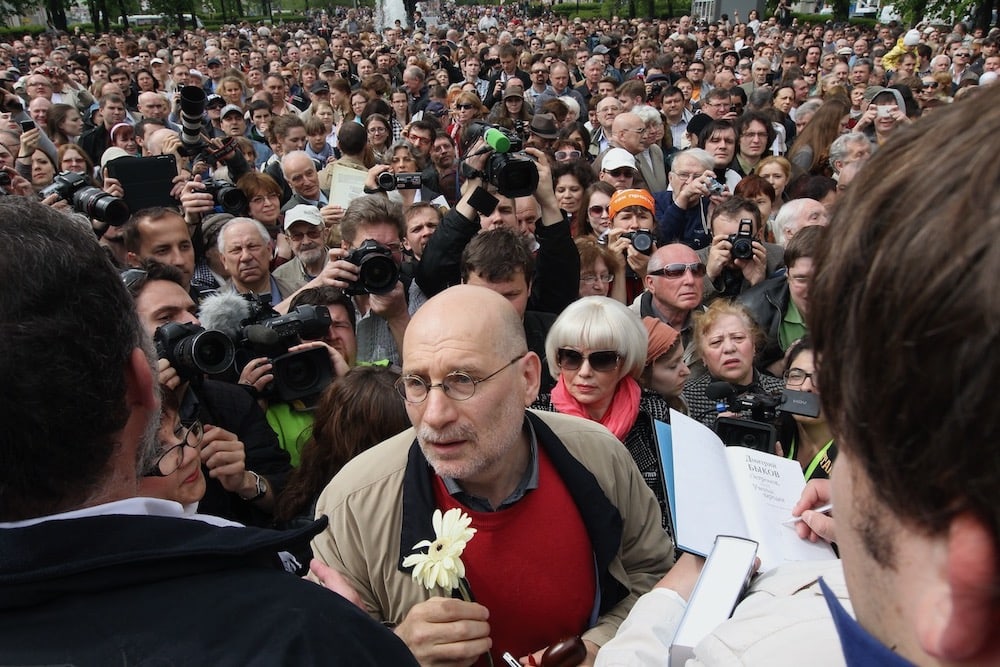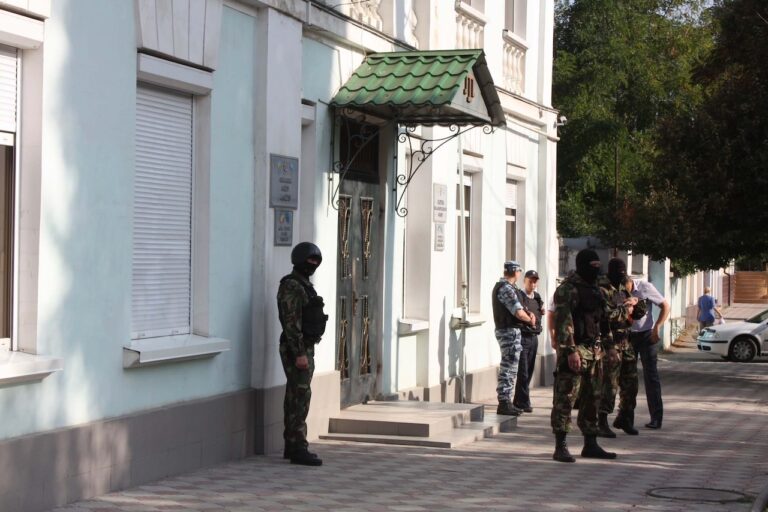UK-based Akunin was placed on the "foreign agents" list in January due to his opposition to Russia's war in Ukraine. A criminal case has been opened against him for "justifying terrorism" and spreading "fake news" to discredit the Russian armed forces.
This statement was originally published on pen.org on 29 January 2024.
“Books have not been banned in Russia since Soviet times. Writers have not been accused of terrorism since the Great Terror.”
The Russian government’s persecution of Akunin has been accompanied by a crackdown on broader literary freedoms. Akunin’s books were removed from sale by Russia’s largest bookstore chains and publishing houses. Zakharov, the only publishing house to attempt to continue distribution, was raided by the police, who seized its inventory of Akunin’s works. In October, all theaters staging performances of Akunin’s works removed his name from posters, and one theater was ordered to cancel his plays.
“A seemingly minor event, the banning of books, the declaration of some writer as a terrorist, is in fact an important milestone,” Akunin wrote on Dec. 18. “Books have not been banned in Russia since Soviet times. Writers have not been accused of terrorism since the Great Terror.”
Numerous prominent Russian writers have been subjected to recent book bans, including author and public intellectual Dmitry Bykov, whose books were suspended at the same time as Akunin. Other writers in Russia continue to be jailed for voicing their opposition to the war, including poets Artem Kamardin and Egor Shtovba. In her first report to the Human Rights Council in September 2023, Mariana Katzarova, the Special Rapporteur on the situation for human rights in Russia, detailed the range of tactics the Russian authorities use to curtail artistic expression and dissent by cultural figures.



